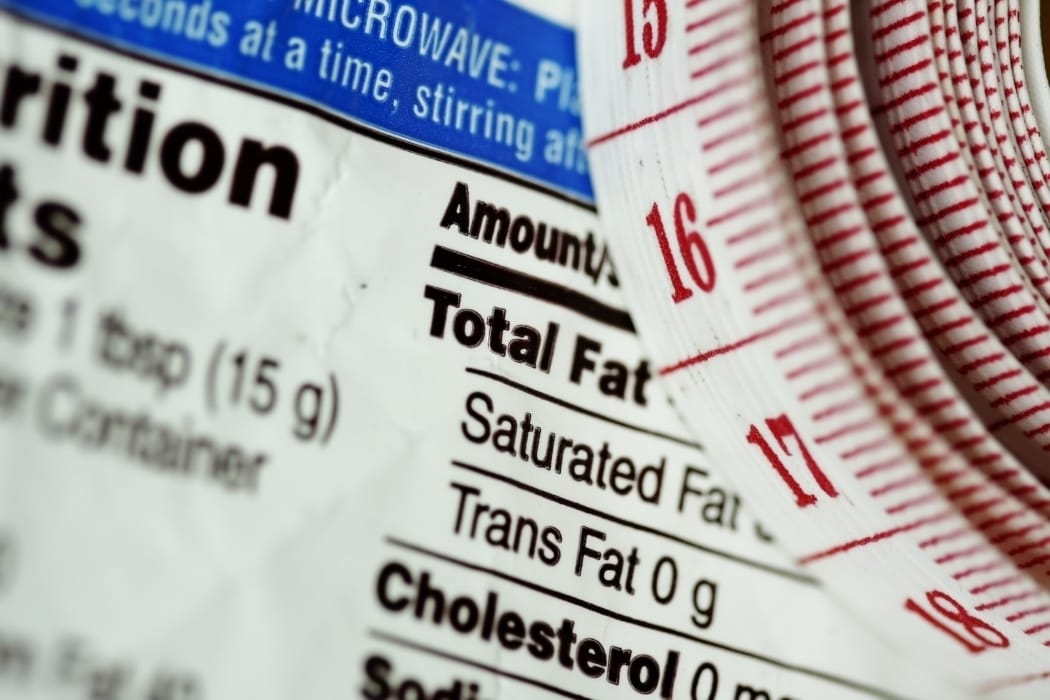Most dietary meal plans are based on calorie restriction. Usually, the essence of these approaches is to replace high-calorie foods like bacon, cream, and donuts with low-fat and low-carb options, low-calorie vegetables, and greens. However, this does not apply to the keto diet. The traditional keto diet involves getting 70-75% of your daily calories from fat and only 5% from net carbs. It implies only 20-30 grams of carbohydrates per day.
The basic idea behind the ketogenic diet is to consume foods that are high in fat, moderate in protein, and as low as possible in the number of carbs. With such a diet, the body uses fats instead of carbs as the main energy source. After the breakdown of fats, ketone bodies are formed. An increase in their content in the body is called ketosis. One of the side effects of this process is fast and healthy weight loss.
Why is it not necessary to count and particularly eat fewer calories on this diet? Or is it still necessary? Should I count calories on keto?
Counting calories on keto is not necessary for feeling good and losing weight. Usually, people intuitively feel their healthy calorie intake for weight loss or maintenance. However, in some cases, counting calories on keto is still necessary. For example, if your weight loss has stalled, you need to shed the last couple of pounds or deal with an eating disorder.

Why do people lose weight when high-calorie fats are the basis of the diet? How to lose weight without counting calories on keto? When is it better for you to still count calories on a low-carb diet? Let’s take a look at these questions in detail. Let’s dive in!
What are Calories?
A product’s calorie or energy value is the amount of energy the body receives when it is fully absorbed. Energy is stored in the chemical bonds of proteins, fats, and carbs that make up food. When food is digested, large, high-energy macronutrient molecules are broken down into smaller, lower-energy macronutrients. These are amino acids, glycerol, fatty acids, and monosaccharides. In this case, part of the energy is released and used by the body for the synthesis of energy molecules or converted into heat.
To maintain metabolism and basic life functions such as breathing, heartbeat, body temperature, etc., each person in a state of rest needs a certain amount of energy [1]. This amount is called the basal metabolic rate. Its value depends on age, gender, weight, physique, genetics, and other factors.
To determine the level of basal metabolism, special formulas allow you to approximately calculate this value by weight, sex, height, and age. Approximately, these formulas do not take into account individual factors. For example, the level of basal metabolism does not include the energy we spend on ordinary daily activities, walking, or playing sports. The more active a person’s lifestyle is, the more additional calories they need [2].

What Factors Are Important for Weight Loss?
Weight loss is a complex process that depends on many components. One of them is hormones that regulate the feeling of hunger and satiety and the formation of body fat. First of all, it is insulin, glucagon, and leptin:
- Insulin is produced in response to increased blood glucose after a meal. It affects the storage and burning of fat stores. It is sometimes referred to as the fat-storage hormone because it promotes fat storage and inhibits lipolysis. The more carbohydrates in the food, the more blood sugar and insulin are released.
- Glucagon is an insulin antagonist hormone. It is released when blood glucose levels are low. To maintain homeostasis, glucagon triggers the extraction of energy from reserve sources, namely glucose from glycogen or, when glycogen is deficient, ketone bodies from fat.
- Leptin is a fatty tissue hormone that regulates energy metabolism. It is also known as the satiety hormone. Leptin suppresses appetite, promotes fat burning, and signals the abundance of energy resources and the absence of the need to replenish them through food.
Chronic inflammatory processes often become an obstacle to weight loss. Their causes may be untreated infections, stress, lack of sleep, or smoking. Inflammation affects metabolism, immune and endocrine systems. It contributes to the development of insulin resistance [3], fluid retention, and impaired absorption of nutrients.
In addition to these physiological points, it is important to remember the psychological and physical comfort of the diet. One of the reasons a calorie deficit doesn’t work is that it’s hard for you to limit yourself all the time. As a result, you experience a strong feeling of hunger, especially at the beginning of your weight loss journey. Also, many people simply quit the diet because they constantly need to count, weigh and write down something.

Should I Count Calories on Keto?
Losing weight based on a caloric deficit happens because you burn more calories than you eat. In this case, the body spends its reserves, that is, body fat, to obtain the missing energy. But in fact, everything is not so simple. Your body is a very complex system in which all processes are interconnected. And the calorie deficit method doesn’t always work [4], especially in the long run.
Many other important factors influence weight change, not only calorie count. That is why some people can eat a lot and not gain weight, while others gain extra pounds just by looking at food or do not lose weight even with severe calorie restrictions. And what about the low carb diet? Do you need to limit your daily calories on keto?
No, you don’t need to count calories on a high fat diet. Keto food fills you up quickly and keeps you full for quite a long time, reducing your appetite. However, consuming too many calories is a fairly common problem among those on keto. It happens if you are prone to overeating. Since the keto diet is mostly high-fat, you have a high risk of exceeding your daily allowance and, as a result, gaining weight.
That is why even on a keto diet, you need to monitor the approximate number of calories consumed. What does it mean? You don’t need to precisely calculate the calories in food, but just keep in mind the nutritional value of the foods you eat [5]. Even if the keto diet allows you to eat bacon or nuts, you should not get carried away with them. Excessive calorie intake can negatively affect not only weight but also the health of the body as a whole.
Why Don’t You Need to Count Calories on Keto?
Ketogenic diets outperform low-calorie diets in the long run. It happens even when the keto diet contains more calories. Why is this happening? The fact is that low-carb diets affect the causes of weight gain: eating behavior, appetite levels during the day, metabolism, and hormone production.
Keto nutrition will help you lose weight without counting calories because it:
- Eliminates cravings, glucose, and insulin spikes caused by carbs, especially refined ones. On keto, the body regulates appetite according to your energy expenditure.
- Eliminates unhealthy processed foods that cause food addiction and stimulate appetite.
- Satiates and satisfies the feeling of hunger for a long time, as the diet is based on fats, and they are much more nutritious than carbs.
- Helps eliminate inflammation and other factors that cause the dysfunction of fat cells.
- Affects hormones that regulate appetite and are responsible for burning fat reserves. It is especially true for those people who are overweight or insulin resistant. Low insulin levels promote the breakdown of fats and prevent their accumulation. At the same time, glucagon works with a decrease in blood glucose levels since glycogen stores are depleted on keto. The ketogenic diet also increases the satiety hormone leptin levels and maintains sensitivity to it.
- Increases basal metabolic rate compared to high-carb diets. Due to the increased energy expenditure on a ketogenic diet, you can eat more calories without sacrificing weight loss.
Thanks to stable glucose and insulin levels on keto, you are much more comfortable, and easier to maintain your calorie intake [6]. Usually, it happens intuitively, without special calculations. People on keto tend to eat significantly less and are in a calorie deficit without even realizing it.

When Should You Count Calories On Keto?
While the keto diet boosts your metabolism and burns more calories, you won’t be able to lose weight if you regularly overeat without listening to your hunger and your body’s needs. Calorie counting isn’t against the keto rules. It’s just not usually necessary. Counting calories on keto is recommended only in three cases.
You Doubt That You Have Reached Ketosis
On keto, first of all, the correct ratio of nutrients is important, and only then does the number of calories matter. Your diet should consist of 5% carbs, 20% proteins, and 75% fats of daily calories. If you’re not sure you’re following these proportions, check your menu.
Calculate how many calories you eat per day and estimate the percentage of macronutrients. Usually, such checks are very helpful at the beginning of the transition to keto. It happens that despite the severe restriction of carbs, you consume more protein and less fat than you need. Then, due to gluconeogenesis (the formation of glucose from amino acids), the body breaks out of ketosis and prevents you from losing weight.
You Are Sure That in Ketosis but Not Losing Weight
If you don’t have chronic inflammation and hormonal issues, you still have a chance of overeating and consuming excess calories. After all, healthy fats are still quite high-calorie foods. For example, 100 g of olive oil contains 884 kcal. So calculate how many calories you approximately eat per day (and drink in bulletproof coffee, for example), and compare this value with the recommended rate for the keto diet for your parameters.
You should also check your daily caloric intake if you have been on keto for a long time and still have to lose the last couple of pounds to your desired weight. Usually, these last pounds are the hardest to get rid of. In this case, you may need to go into a calorie deficit [7] and avoid certain keto treats like cheese snacks and keto desserts.
You Have an Eating Disorder
People often get eating disorders after a long period of experience with strict diets or for other reasons. In this case, when starting a keto diet, you can eat a lot of allowed keto food after strict fat limitations. Some people stop overeating as soon as they start their second month of keto by increasing their weight during the first month. From a metabolic perspective, this is a normal process as your body replenishes healthy fats that it has been deprived of for a long time.
However, you do not want to gain more extra pounds in this case, do you? Then you should calculate your daily calorie intake following keto proportions and approximately follow it when starting your weight loss. Of course, you don’t have to weigh every meal and count calories precisely. However, it will be enough to roughly understand keto food’s calorie content and the amount you need to eat daily to lose weight or maintain weight.

Conclusion
Of course, calories are important for losing weight and maintaining a healthy weight, but that’s just one factor. You also need to consider the state of the hormonal background, chronic diseases, lifestyle, and previous dieting experience.
Counting calories and nutrient ratios is not against the principles of keto. At first, many people even need it because, without experience, it is impossible to determine the number of proteins, fats, and carbs your body needs. But if you’re happy with the results of changing weight on keto, then you can skip the calorie calculations.
Learn to listen to your body, especially the feeling of hunger and satiety. Eat consciously, and choose whole foods with minimal processing and high nutritional value, rich in healthy fats, high-quality protein, vitamins, and minerals. It will help you to stay full for a long time, eliminate harmful food addictions, not overeat and maintain health.
Sources:
- Davoodi, S. H., Ajami, M., Ayatollahi, S. A., Dowlatshahi, K., Javedan, G., & Pazoki-Toroudi, H. R. (2014). Calorie shifting diet versus calorie restriction diet: a comparative clinical trial study. International journal of preventive medicine, 5(4), 447–456. https://www.ncbi.nlm.nih.gov/pmc/articles/PMC4018593/
- Howell, S., & Kones, R. (2017). “Calories in, calories out” and macronutrient intake: the hope, hype, and science of calories. American journal of physiology. Endocrinology and metabolism, 313(5), E608–E612. https://doi.org/10.1152/ajpendo.00156.2017
- Hussain, T. A., Mathew, T. C., Dashti, A. A., Asfar, S., Al-Zaid, N., & Dashti, H. M. (2012). Effect of low-calorie versus low-carbohydrate ketogenic diet in type 2 diabetes. Nutrition (Burbank, Los Angeles County, Calif.), 28(10), 1016–1021. https://doi.org/10.1016/j.nut.2012.01.016
- Benton, D., & Young, H. A. (2017). Reducing Calorie Intake May Not Help You Lose Body Weight. Perspectives on psychological science : a journal of the Association for Psychological Science, 12(5), 703–714. https://doi.org/10.1177/1745691617690878
- Kim J. Y. (2021). Optimal Diet Strategies for Weight Loss and Weight Loss Maintenance. Journal of obesity & metabolic syndrome, 30(1), 20–31. https://doi.org/10.7570/jomes20065
- Manninen A. H. (2004). Is a calorie really a calorie? Metabolic advantage of low-carbohydrate diets. Journal of the International Society of Sports Nutrition, 1(2), 21–26. https://doi.org/10.1186/1550-2783-1-2-21
- Brown, R. E., Canning, K. L., Fung, M., Jiandani, D., Riddell, M. C., Macpherson, A. K., & Kuk, J. L. (2016). Calorie Estimation in Adults Differing in Body Weight Class and Weight Loss Status. Medicine and science in sports and exercise, 48(3), 521–526. https://doi.org/10.1249/MSS.0000000000000796